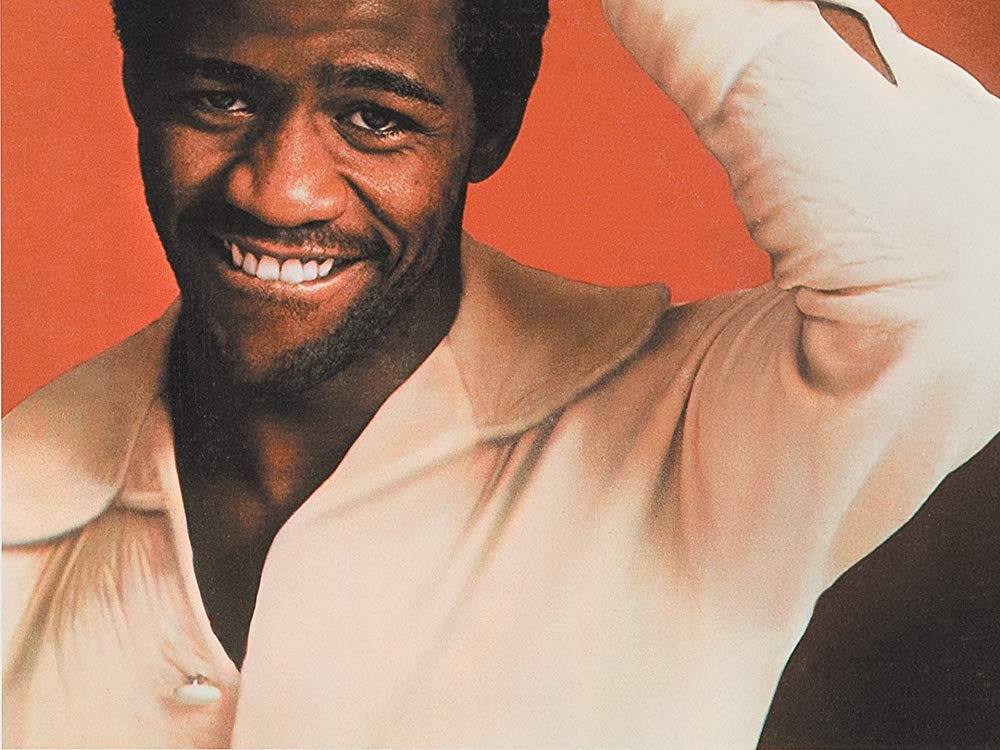René Recommends: “Belle” by Al Green

Life and listening to Al Green have taught me two things about the relationship between boundaries and love: romantic love too often comes down to transgressing boundaries, and self-love always comes down to reclaiming them.
It’s all there in “Belle,” a song from Green’s 1977 watershed album of the same name. Both song and album came in the wake of Green’s “born again” experience in 1973 and his ordination as a minister in 1976. They also came when Green was on the brink of renouncing secular music, as in the soulfully sexy kind of songs that made him famous. That part didn’t take in the long run. But at the time, his renewed spiritual zeal produced a masterpiece set of songs that took a turn from his previous recordings — still soulful, but more personal and vulnerable than ever. The album’s title song especially was a landmark of his new sensibility.
It’s also my favorite song of his. It’s gospel, but it operates on a different level than your typical praise song. Somewhere between conflict and calm is what it sounds like to me. Like someone just breached from the storm (“My heart was lost but now it’s found”). Or maybe someone trying to re-situate himself on the opposite side of self-destruction, with voice and spirit finally in reach of the redemption, within sight of peace and forgiveness.
“Belle” is about loving and giving your life over to God, but it’s addressed to a human — someone with such a powerful hold on Green, he starts and ends the song with her name, repeats it over and over, and titles the song and entire album after her. The song hears him setting some boundaries with Belle, explaining why he’s choosing God over her, gently marking distance with lines like, “It’s you I want but Him that I need.” But with her name bookending every line, the song is ultimately given over to her, even if Green himself no longer will. God may have Green’s soul, but Belle has the song’s.
In subsequent years, Green has identified the inspiration for “Belle.” Most people who know much about his career can easily guess anyway. Her name was Mary Woodson White, a married mother who left her family to start an affair with Green, whose new religiousness didn’t seem to have much effect on his longtime womanizing. Their affair ended when Mary accompanied him home with another woman one night and threw a pot of boiling grits over him before taking her own life. Green was left hospitalized with severe burns for months. It’s not a pleasant story. Which only makes the song’s beauty and sense of hard won calm more aching and extraordinary. It also explains the new vulnerability in Green’s voice. I listen to the song with Mary in mind and I think Green knows he really fucked up. But instead of excusing himself or hypocritically proclaiming righteousness, he’s singing for self-forgiveness by having the conversation with Mary he knows he should have had when she was still alive.
So what does this have to do with memoir? Well, in my own life, in love, I’ve been Belle/Mary and I’ve been Al Green. I’ve been the fucked over and I’ve been the fuck up, even in the same relationship. I’ve had to reckon with damage. I’ve had people use faith, or a premature or even immature personal understanding of it, to distance themselves from me, and I’m guilty of the same hurt too. I still struggle with boundaries, my own and others — as in recognizing them, respecting them, reclaiming them. It’s a constant life negotiation. And I often wonder if this means I’m hopeless, or beyond redemption. Every time I hear “Belle” though, it makes me feel like maybe it’s all part of being human.
https://www.youtube.com/watch?v=kjEHoz1r3bs(Song recommendation by René Ostberg)